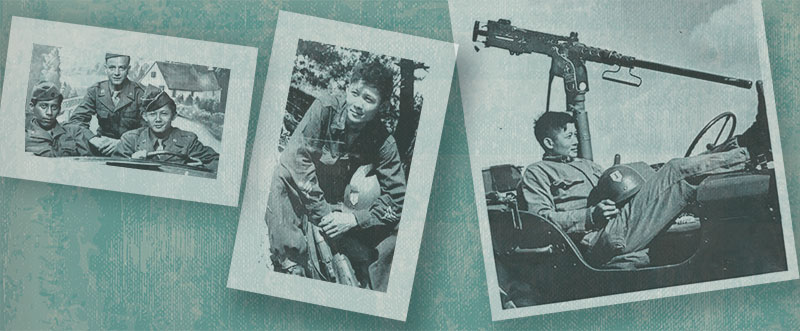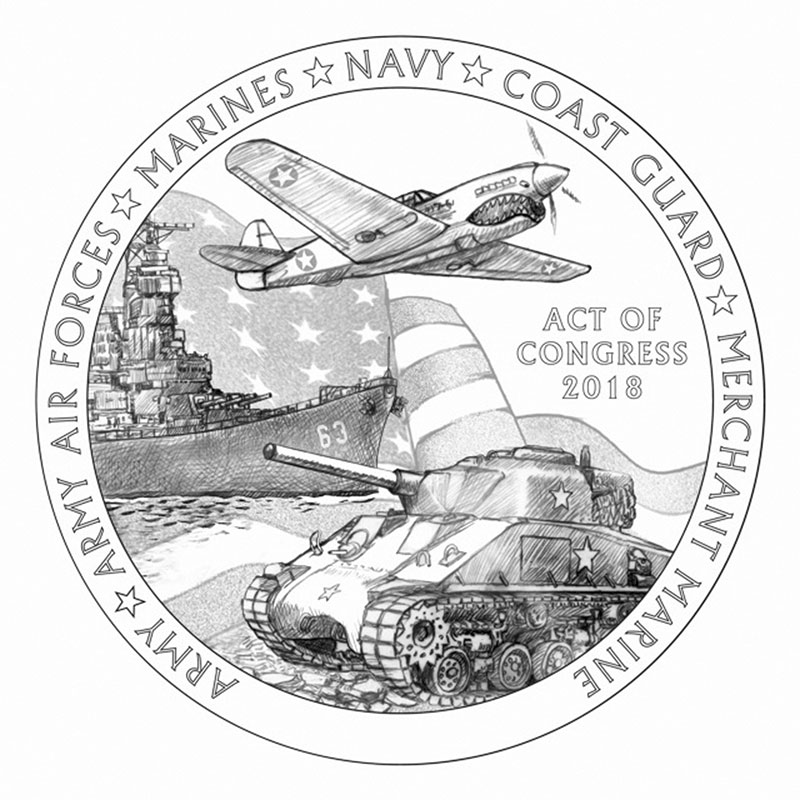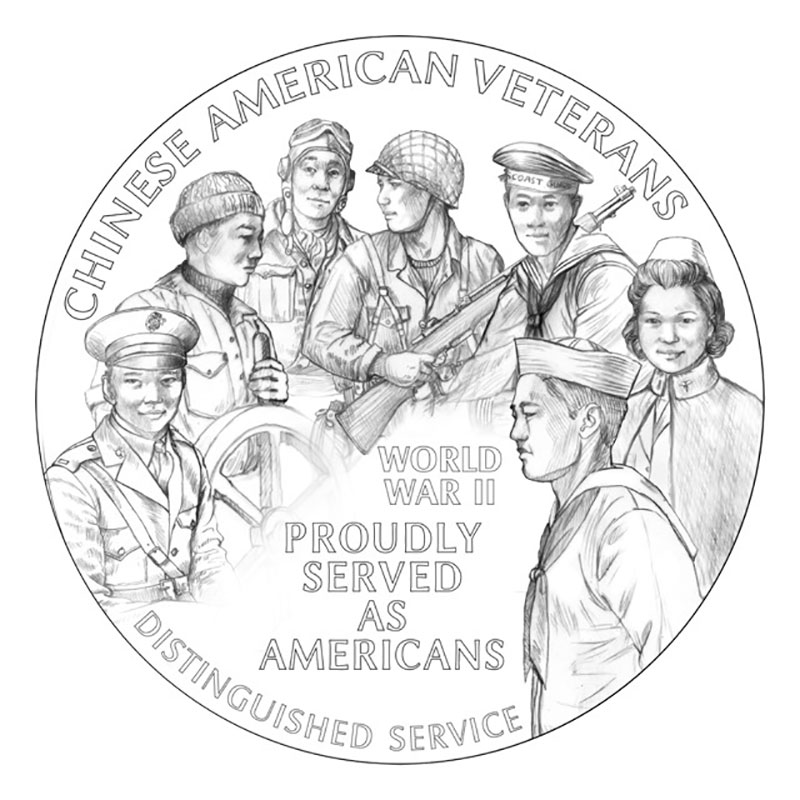“We Just Did Our Job”

Norman Won was one of many Chinese Americans from Hawai‘i who served in World War II.
PHOTOS COURTESY ERIC WON
Chinese-American veterans of World War II – 27 of whom still live in Hawai‘i — are finally getting the recognition they deserve in a Congressional Gold Medal.
World War II was a cataclysm unlike any war that came before or since. Americans of every class and color were called upon to do what it took to win.
Among the millions that served were 20,000 Chinese Americans — 1,000 of whom hailed from Hawai‘i.
Their story is one that has often been overlooked by history.
Even Maj. Gen. Robert Lee, retired adjutant general of the state Department of Defense, admits that he didn’t know much about them.
“I thought the Chinese were OK,” he says. “They didn’t serve in segregated units, and they could join anywhere in any unit, and I found out, well, that’s not really the case. They were discriminated against, too.”

The two-sided design of the Congressional Gold Medal of Honor will recognize those who served in every branch of the military during the war, including nurses and the Merchant Marine. ILLUSTRATIONS COURTESY ROBERT LEE
Indeed, Chinese Americans served in every branch of the military during World War II. And now, more than 75 years later, they are getting their long-overdue recognition — every living veteran or their immediate descendants are eligible to receive a Congressional Gold Medal in honor of their sacrifice.
The campaign for this honor, says Lee, originated with the Chinese American Citizens Alliance, a national civil rights nonprofit that has advocated for Chinese Americans since the construction of the Union Pacific Railroad – which famously used Chinese immigrant labor to construct the dangerous rail line, only to largely abandon its workers once it was completed.

“It’s a civil rights group older than the NAACP,” he adds, explaining that the group rose up to fight for benefits for those original laborers and their families.
“The Chinese were (among) the first immigrants (to the United States),” reminds Michele Choy, president of Chinese Chamber of Commerce of Hawai‘i, who co-chaired the campaign alongside Lee. “I had several relatives that fought or served.
“I’m fourth generation, so it’s important that we recognize these people — that the Chinese are not forgotten. We have a voice in this society.”
Lee’s previous experience coordinating the campaign for Japanese-American recognition made him an ideal candidate to spearhead this effort.
It was not the easiest of tasks to gather names, he says, because of the nature of Chinese involvement in the war.
“It’s a disadvantage because (the soldiers) were only one or two by themselves (per unit), versus the Nisei or the Filipinos, who were an organized group and had all the names of the people in their battalions.”
While records exist of which soldiers were inducted around the country, it was a difficult task to track down if they were accepted into service, where they went and what became of them after the war.
The Territory of Hawai‘i, he says, had the third-largest population of Chinese Americans who served, bested only by California (7,000) and New York (2,700).
Still, Lee rallied his military allies to make an appeal to the 115th Congress for immediate action.
“Just turn on the TV, and you can see that nobody in Congress agrees,” he laughs.
“But for this bill, it passed the Senate unanimously, it passed the House unanimously, and President Trump signed the bill into law the very day it was presented to him.”
The medal, he says, was designed to reflect every aspect of Chinese-American service during the war.
In particular, he points out that women, who often served as nurses, as well as those who served in the U.S. Merchant Marine are being recognized in the design.
“That was not a popular force,” he muses of the latter. “Many times, they had to deliver supplies without a destroyer escort at sea — so if you were hit by a torpedo, you might as well be dead because the chance of being rescued was very limited.”
There are currently 27 living Chinese-American veterans in Hawai‘i that the organizers know of.
“If we had done this earlier, 50 years ago when there were more veterans alive, they would have stopped it,” Lee believes.
“It’s not their style. They never tooted their horn. The living veterans ask us, ‘Why are we getting this medal? We just did our job.'”
A banquet to honor veterans and their families was originally scheduled for May 17, but has been postponed due to COVID-19 precautions.
Lee and Choy hope the extra time enables more families to reach organizers.
“All our living veterans are easily in their mid-90s or a handful are 100 years old,” Lee says. “We hope … we can energize people to say, ‘Hey,
let me register for a Congressional Gold Medal’ for my father or grandfather — and hopefully we will discover a few more that are alive.”
“We need to be recognized,” Choy adds. “In light of this coronavirus, we need to be heard and shown that we are part of America — and we do our part.”
Living Chinese-American WWII veterans or their descendants are urged to register at caww2hawaii.org to receive their Congressional Gold Medal. Organizers also are still fundraising to pay for the cost of printing medals. Visit the website to learn more about how to contribute, as well as for updates on the rescheduled banquet.




